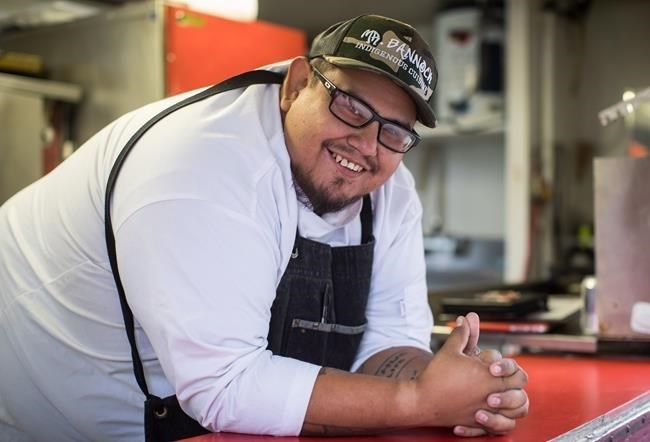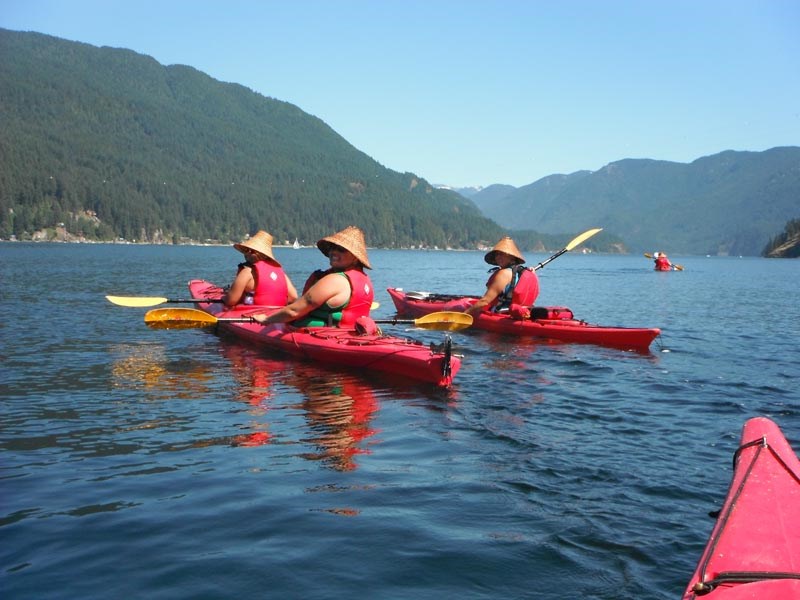Indigenous businesses in British Columbia have shown resilience, adaptability, and positivity in unprecedented times.
A handful of First Nations business owners and managers have shared how they felt when the Coronavirus pandemic hit and how they managed to make it through troubled waters.
Kayaking out of trouble
For Whonoak, Dennis Thomas, the business development manager of Takaya Tours, running a business during a pandemic has been an “eye-opening experience.”
Thomas said the seasonal tour company, which offers 35-foot traditional canoe tours from Cates Park to experience the culture, tradition, and history of the Tsleil-Waututh First Nation, had to make some tough decisions to keep above water.
When news of the pandemic began circulating in January and February, cancellations for Takaya’s summer tours began rolling in from school groups and from around the world.
“We initially lost over $100,000 in bookings … which is huge for a small indigenous business, or any business," said Thomas, who has run the company for the past 10 years.
Like many other businesses, Takaya Tours shut down during the lockdown, which was enforced in B.C. in March.
“We just had to roll with what was going on with the world,” said Thomas. “I wasn’t able to hire staff for the cultural tours, and then we were in lockdown for three months.”
Takaya Tours re-opened in June, with physical distancing in place, but closed the entire cultural canoe side of the business for the year to avoid confusion from people who may have seen the 20-seater canoes out on the water and thought Takaya Tours was breaking social distancing rules.
“We didn’t want to face public shaming or have to deal with that sort of damage control,” said Thomas.
Instead, they focused all their efforts on promoting kayaking – which could be easily physically distanced in one-seater or two-seater kayaks.
“We were able to survive the entire season based on our kayak rentals and a few different grants from Indigenous Tourism BC and our national partner, Indigenous Tourism Association of Canada.”
He said the company saw an increase of more than 50 per cent in kayak bookings across its two locations at Cates Park and Belcarra Regional Park over the summer, putting it down to more people wanting to get outdoors after the lockdown to enjoy nature.
“That’s why we were able to stay above our bottom line,” said Thomas.
Looking to the future, Thomas said the company will be partnering with Wild Bird Trust, in Maplewood Flats Conservation Area, to add another walking tour option to their experiences, with the hope of making Takaya Tours a year-round business.
A need to adapt
Meanwhile, like many businesses during the pandemic, Indigenous retailers and restaurateurs found a move to online sales to be the key to survival.
Lori Simcox, co-owner of Unity Clothing at Lonsdale Quay in North Vancouver, said that the business had changed for the better on top of introducing the many coronavirus safety protocols – hand sanitizer and masks at the front door, plexiglass at the counter, cleaning all touchable surfaces frequently, and limiting the amount of people in the store, just to name a few.
“We have adapted out of need, and I believe it's improved our operations,” she said, adding that the bricks and mortar store had introduced online shopping with free delivery on the North Shore and new promotions that offer customers a gift, from another local small business, with purchases over a certain amount.
“We have sought out new suppliers to bring in exactly what customers are looking for while they spend more time at home and socialize less. We have also streamlined our hours to when customers shop the most.”
‘We’re still hustling hard’
Similarly, Paul Natrall, Squamish Nation member and owner of North Vancouver’s award-winning Mr. Bannock catering and food truck, said switching to e-commerce was “keeping me alive and keeping me going right now.”
“I was on a path where investors and some different communities wanted a Mr. Bannock franchise, and then COVID happened and brought everything to a halt,” said Natrall, who’s known for his Coast Salish fusion street food.
When large gatherings and events were banned, the struggle became very real for Natrall, who usually books various events throughout the Lower Mainland.
“On National Indigenous Day, we would have over 2,000 people for one service, and those funds would definitely last me throughout the winter months,” he said.
Being lucky enough to have a strong following on social media, he decided to pivot to an online store.
Natrall now offers virtual online cooking lessons and various pre-packaged Indigenous foods for sale on his website, including his classic bannock mix, chocolate bark, cinnamon sugar mix, and a smoked spice rub.
“I was definitely really nervous when we launched our online store,” said Natrall.
“I’ve been fortunate to have a few big orders. Everybody is learning as we’re going, and I’m just thankful that I’m still keeping busy.
“We’re still hustling hard, just in a different way.”
 Squamish Nation Chef Paul Natrall poses in the Mr. Bannock food truck. photo The Canadian Press / Darryl Dyck
Squamish Nation Chef Paul Natrall poses in the Mr. Bannock food truck. photo The Canadian Press / Darryl DyckHe said he’d also partnered up with other indigenous companies and sold their products on the food truck and website, including Spirit Bear coffee from Coquitlam and bacon from One Arrow Meats in Vancouver.
While the first thought for Inez Cook, owner of Salmon n’ Bannock, an intimate eatery in Vancouver serving Pacific Northwest Indigenous cuisine, was that she was “going to go bankrupt” when the pandemic struck, she’s been able to navigate her way through it.
“The regulations and changes are almost daily, and it is hard for the businesses to stay on top of it and extremely confusing for the customers,” she said, noting that they now do daily staff temperature checks and have followed all COVID-regulated protocols since the beginning.
While the restaurant has been open at 50 per cent capacity now since August, she said she also jumped on the Uber Eats bandwagon and focused on online takeout sales over the past year.
Keeping connections strong
Restaurateurs and retailers weren't the only ones turning their attention to improving their online offerings.
When Squamish Lil’wat Cultural Centre, a tourism hub based in Whistler, closed for more than three months to the public, staff decided to focus on a new motto: “While our doors may be closed, our hearts remain open.”
The thriving centre, which educates youth and visitors from around the world about the Sk̲wx̲wú7mesh (Squamish) and L̓il̓wat7úl (Lil’wat) Nations – the two First Nations that share the territory – began offering free virtual learning.
“Our team didn’t want to lose their connection with those who wanted to still engage, connect, and learn about our two distinct cultures,” explained Mandy Rousseau, manager of marketing and communications at SLCC.
“Offering virtual programming enabled us to continue this work safely.”
Rousseau said thousands of people participated across all their online offerings including, Breaking Bannock Conversations, craft activities, and live-streamed concerts.
The coronavirus learning curve
From implementing coronavirus safety protocols to pivoting to e-commerce, it’s been a year of change for businesses. Still, many Indigenous owners choose to see the positives moving forward.
“We have learned so much more about our customers and what they want and how best to accommodate that – which has been great,” said Simcox, co-owner of Unity Clothing.
Through it all, Thomas, manager of Takaya Tours, said he’s learned to be “a little bit more humble, appreciative, and patient.”
“Having to juggle a lot of variables was an eye-opening experience, but we just took our time, we had patience, and we showcased that we’re resilient,” he said.
Cook, the owner of Salmon n’ Bannock, added that the power of community really shined through for her during the past year.
“Small businesses truly are the heartbeat of all communities,” she said. “There were so many people that came together that wanted us to succeed and helped financially, and also offered help in so many ways, even when it wasn’t asked for – this was so touching and truly appreciated.”
For now, the business owners and managers are all hoping the coronavirus vaccines will bring brighter days in 2021.
“We have lots of dreams for the future, but clearly, many things are out of our control,” said Cook.
“We need to take things day by day at this point and continue to roll with the punches.”
Help for businesses during coronavirus
The federal government is offering small and medium-sized Indigenous businesses support through a number of avenues including, Canada's COVID-19 Economic Response Plan, the Indigenous Community Business Fund, and the Indigenous Tourism Stimulus Development Fund.
Elisia Seeber is the North Shore News’ Indigenous and civic affairs reporter. This reporting beat is made possible by the Local Journalism Initiative.



